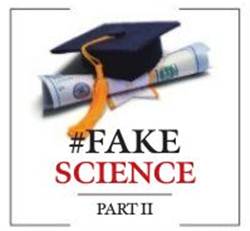- India
- International
SC Lakhotia, professor emeritus at BHU: ‘Universities, UGC responsible for relaxed attitude to predatory journals’
The universities and UGC are responsible for this relaxed attitude. The cycle of publishing and withdrawing lists of journals has obviously questioned the credibility of the exercise, says SC Lakhotia.
 S C Lakhotia, professor emeritus at Banaras Hindu University.
S C Lakhotia, professor emeritus at Banaras Hindu University.
Ten months ago, S C Lakhotia, professor emeritus at Banaras Hindu University (BHU), resigned from a UGC committee to look into issue of predatory publishing after expressing disappointment at the panel’s functioning. In an interview with The Indian Express, Lakhotia says the concept of open access publishing needs to be relooked. Edited excerpts:
Why did you resign from the UGC committee on open access journals?
I was disappointed that although most of the members appeared to agree that the UGC should not maintain an official list of recognised journals but issue an advisory to universities and colleges about the quality of journals that each should check and recognise, the UGC continued with the list. The list had many bogus or dubious journals.
Can you name some of the biggest predatory publishers and journals in India?
I understand that the OMICS group is based in India and most of its journals would qualify to be in that category.
READ | Face behind biggest of all: ‘40 countries, million articles’

What is the impact of open access “predatory” journals on Indian academics, quality of research and reputation?
These so-called predatory journals have brought a bad name for the country and also for many of its sincere researchers.
There are allegations that several universities recommended predatory journals for inclusion on the UGC list without proper scrutiny. The UGC put out that list, and later removed it. Who do you hold responsible for this?
The universities and UGC are responsible for this relaxed attitude. The cycle of publishing and withdrawing lists of journals has obviously questioned the credibility of the exercise.
The UGC list includes journals that are indexed on Scopus (the citation database) and Web of Science (the indexing service). Is this accepted practice?
I believe that several journals on the Scopus and WoS lists are bogus. These need to be examined.
What is the way out? Is there a need to relook the concept of open access publishing?
We need to seriously relook the way we assess a candidate or institution on their research contributions. The use of metrics like impact factor, citation index, H-index, etc., have been wrongly used for a long time and have done enormous damage. Likewise, the minimal number of publications defined by UGC is also largely responsible for the exponential growth of predatory journals and conferences. The Indian National Science Academy recently came out with a policy document on these issues. If that is followed, the scourge of open access and predatory journals would be significantly reduced.
Should commercial publishers be stopped from publishing research journals, should this job be left to research organisations and universities?
One cannot stop commercial publishers from publishing research journals. However, we can encourage academic bodies to publish good journals. When we move away from the impact factor syndrome, the role of commercial publishers would obviously get reduced. Further, doing away with the discrimination between national and international journals would also let journals in India, which maintain good publication policies, flourish. Since nearly all of them are supported by reputed societies and academies, it is expected that they would not charge authors.
Apr 24: Latest News
- 01
- 02
- 03
- 04
- 05








































